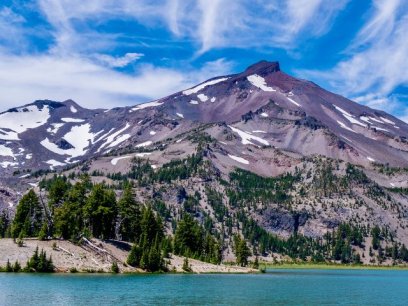
After graduating with a bachelor’s of science degree in meteorology from Penn State in 1990, Murgo went on to work for AccuWeather in State College, WTOV-TV in Ohio, and WUSA-TV in DC before accepting his position as Chief Meteorologist at WTAJ-TV in Central Pennsylvania. It was at this post that in 2005, Murgo became Pennsylvania’s first Certified Broadcast Meteorologist by the American Meteorological Society, and later served as chairman for the society’s Board of Broadcast Meteorology.
In addition to his broadcasting duties, Murgo also teaches introductory meteorology courses at Penn State Altoona as an adjunct professor, and makes school visits to discuss his favorite topic with younger classes across Central Pennsylvania.
What kinds of math, science, engineering, or technology classes did you need to take in school to prepare for your current career?
Joe Murgo: Felt like I had more math than the math majors. Took four semesters of calculus, two of physics, one of chemistry which all let to my dynamics and thermodynamic courses.
How are weather forecasts created?
JM: I always tell students that I take a picture of the weather in what is going on right now. I look at the satellites, radars and current conditions. I then use what I learned in school to move it forward and take into account guidance from different model simulations.
My proudest accomplishment is as simple as when people tell me that they find me reliable and depend on my forecast.
Joe Murgo
JM: They are crucial in running simulations of what the atmosphere will do in the future. None are perfect, which is a good thing as we wouldn’t need the people. Though without them we wouldn’t have much in the way of useful longer range forecasts. Computers are also crucial in helping us gather and sort weather observations.
Is there a specific breakthrough or event in your field’s history that stands out to you as a milestone? Why would you say it is so important?
JM: The dawn of the satellite era in 1960. We now can see weather in places where nobody is around. It has helped to save lives and to gather necessary climate information in remote areas.
What would you say has been your proudest accomplishment on the job, or your favorite part of the job?
JM: My proudest accomplishment is as simple as when people tell me that they find me reliable and depend on my forecast. My favorite parts of the job are the challenge of forecasting the weather and studying the climate.
Additional sources:
- WeAreCentralPA.com. 2014. "Joe Murgo." Nexstar Broadcasting Group, Inc. Accessed April 12, 2016. http://www.wearecentralpa.com/bts/joe-murgo_20150711120151410


